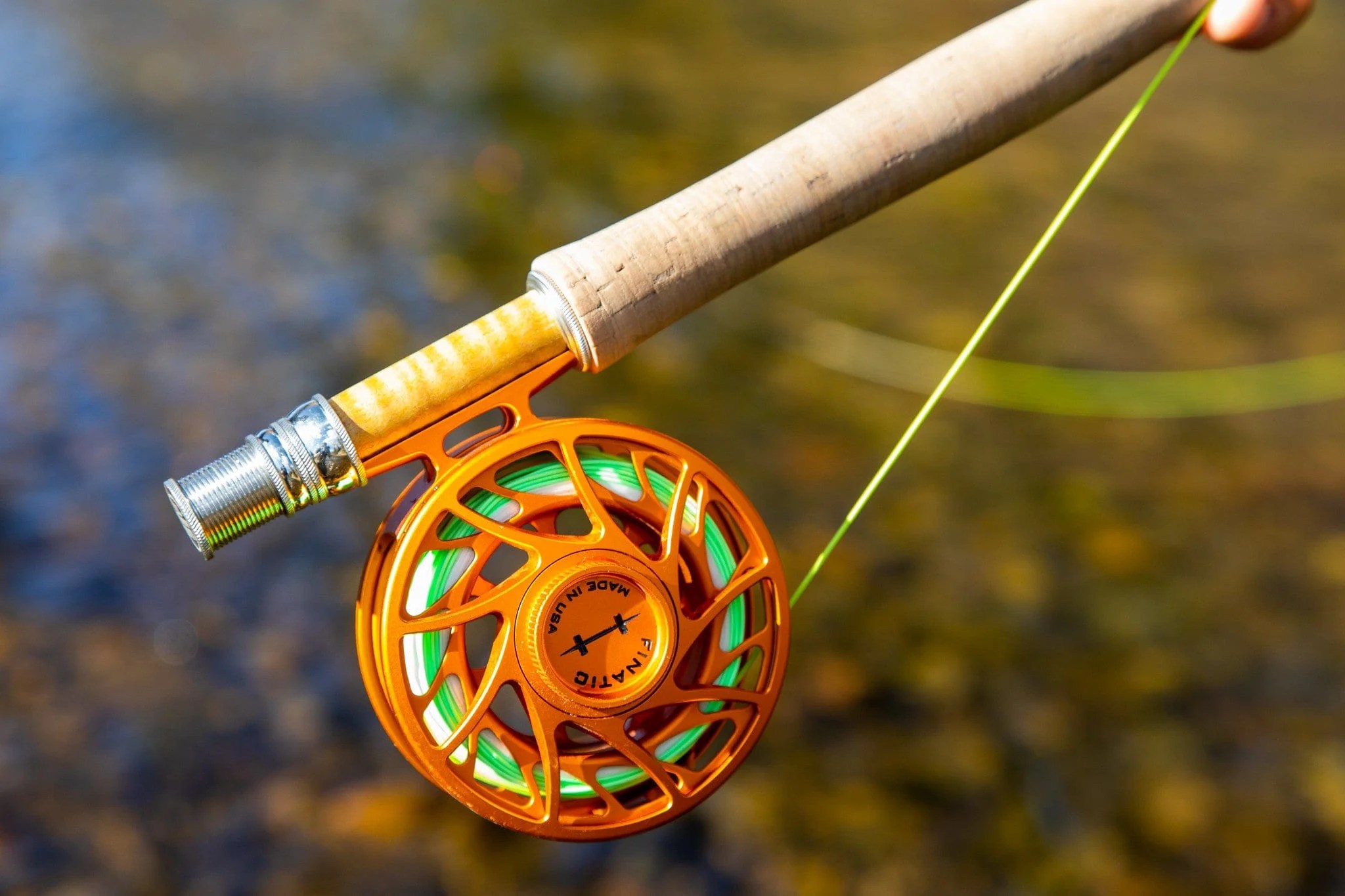Mastering Fly Fishing Gear Selection
Ready to dive into the captivating world of fly fishing? Choosing the right rod and reel can feel overwhelming, especially for beginners. This guide will navigate you through the process, ensuring you land the perfect setup for your fishing adventures.
Fly fishing, an angling method using artificial flies as bait, requires specialized equipment. Unlike spin fishing, where the weight of the lure propels the line, fly fishing utilizes the weight of the line to cast the lightweight fly. This fundamental difference necessitates a unique rod and reel combination. Making the right choices early on is essential for a successful and enjoyable experience.
The history of fly fishing stretches back centuries, with mentions as early as the 2nd century AD. Originally a means of sustenance, it evolved into a beloved sport, captivating anglers with its elegance and challenge. Today, the principles of selecting the correct rod and reel remain crucial. A poorly matched setup can lead to frustration, tangles, and ultimately, an unsuccessful day on the water. Understanding the relationship between rod weight, line weight, and reel size is paramount.
Successfully selecting a fly fishing rod and reel hinges on understanding your target species and fishing environment. Are you chasing small trout in a mountain stream, or battling powerful salmon in a raging river? Each scenario dictates a different approach to gear selection. Consider factors such as the type of water you'll be fishing, the size and species of fish you're targeting, and your casting ability. This information will guide you towards the ideal rod weight and reel size.
Let's delve into the essential elements of choosing the right equipment. The "weight" of a fly rod refers to its lifting power and casting ability. Lighter rods (e.g., 2-4 weight) are ideal for small streams and delicate presentations, while heavier rods (e.g., 8-12 weight) are suited for larger rivers and bigger fish. The reel, designed to hold the fly line and backing, should balance the rod and offer appropriate drag capabilities for the target species.
Selecting your first fly fishing rod and reel can be simplified by focusing on a versatile setup. A 5-weight rod and reel combination is often recommended for beginners, as it handles a wide range of fishing situations, from small streams to larger rivers. This versatility allows you to explore different waters and target various species while honing your casting skills.
Benefits of Choosing the Right Gear:
1. Improved Casting Accuracy: A balanced rod and reel allow for smoother and more precise casts, leading to greater accuracy and increased chances of hooking fish.
2. Enhanced Fish Fighting Ability: The appropriate rod and reel will provide the necessary strength and control to handle powerful fish, minimizing break-offs and maximizing your landing success.
3. Increased Enjoyment: Using well-matched equipment makes casting easier and more enjoyable, enhancing your overall fishing experience.
Action Plan for Buying a Fly Rod and Reel:
1. Determine your target species and fishing environment.
2. Research suitable rod weights and reel sizes.
3. Visit a reputable fly shop and talk to experienced staff.
4. Cast several different rod and reel combinations.
5. Choose the setup that feels most comfortable and balanced.
Recommendations: Consider visiting websites like Orvis or Yellowstone Anglers for detailed product information and expert advice.
Advantages and Disadvantages of Buying Different Types of Fly Fishing Gear
Choosing between different rod and reel combinations comes with its own set of trade-offs. Understanding these will help you make an informed decision.
Best Practices:
1. Match your rod and reel: Ensure the rod weight and line weight are compatible with the reel size.
2. Consider your budget: Fly fishing equipment ranges in price, so set a budget beforehand.
3. Practice casting: Take lessons or practice regularly to improve your casting technique.
4. Maintain your equipment: Clean and lubricate your reel regularly to ensure its longevity.
5. Learn basic knots: Mastering essential fly fishing knots is crucial for successful fishing.
Frequently Asked Questions:
1. What is the best fly rod for beginners? - A 5-weight rod is generally recommended.
2. How much should I spend on a fly fishing setup? - Prices vary, but a good starter kit can be found for around $200-$300.
3. What type of fly line do I need? - Weight-forward floating lines are suitable for most beginners.
4. Do I need waders for fly fishing? - Waders are recommended, but not always essential.
5. Where can I learn to fly fish? - Local fly shops, online resources, and experienced anglers can provide valuable instruction.
6. What are the different types of fly reels? - Common types include click-and-pawl, disc drag, and automatic reels.
7. How do I choose the right fly? - Fly selection depends on the target species and the insects present in the water.
8. What other accessories do I need? - Essential accessories include leaders, tippet, nippers, and a fly box.
Tips and Tricks:
Consider buying a used rod and reel to save money, especially when starting out. Join a local fly fishing club for access to resources and experienced anglers. Practice your casting in a park or open field before heading to the water.
In conclusion, selecting the right fly fishing rod and reel is a crucial step towards enjoying this rewarding sport. By understanding the factors influencing rod weight, line weight, and reel size, you can confidently choose a setup that aligns with your fishing goals and skill level. Remember to consider your target species, fishing environment, and budget. Taking the time to research and select appropriate equipment will significantly enhance your casting ability, fish-fighting prowess, and overall enjoyment on the water. Don't hesitate to seek advice from experienced anglers or visit a reputable fly shop. The world of fly fishing awaits, so equip yourself properly and embark on your angling adventure!
Sparkling seas the ultimate guide to boat vinyl care
Unlocking the power of purple color combinations
Embrace simplicity with sherwin williams minimalist sw 9611














